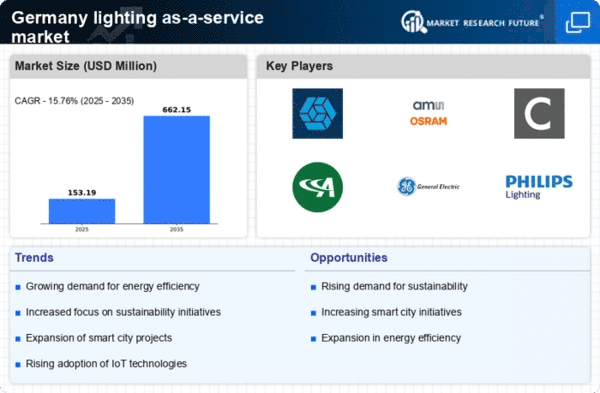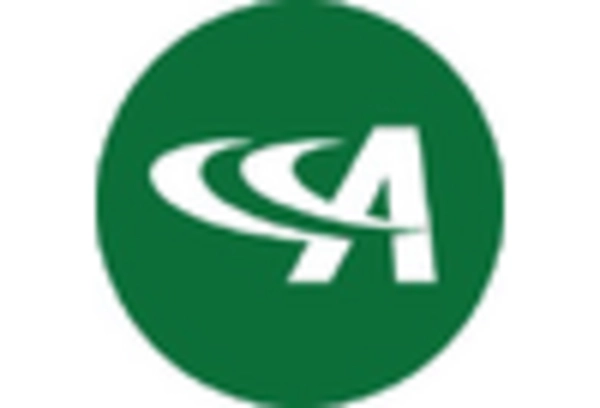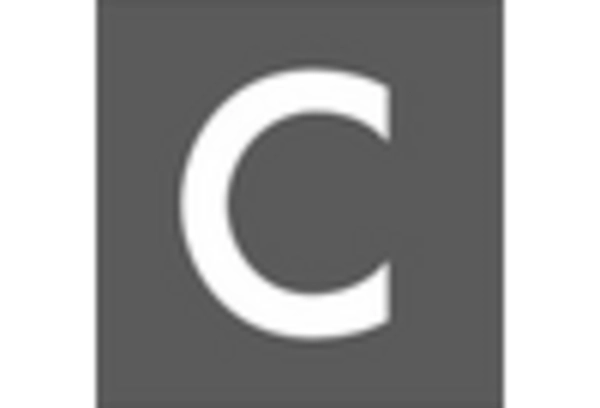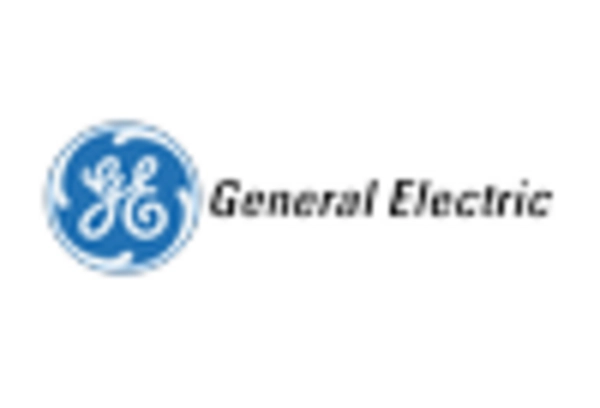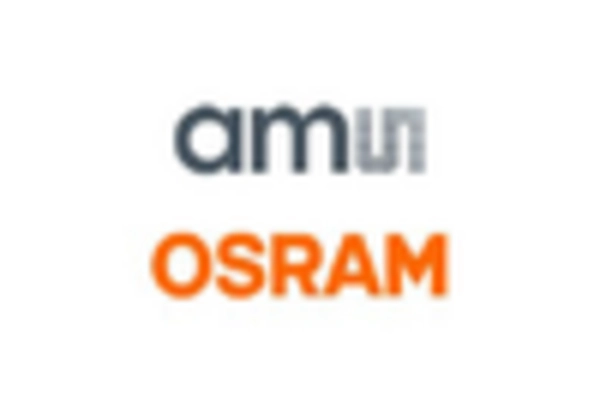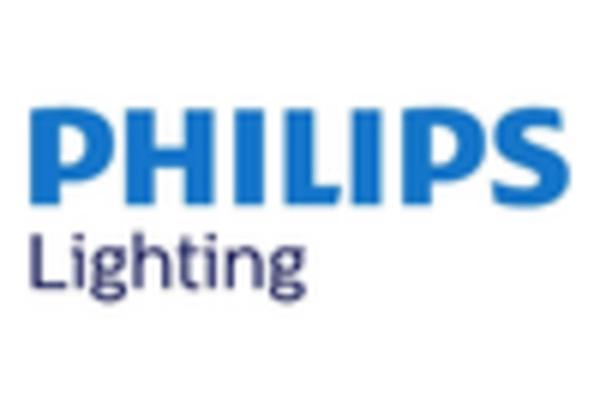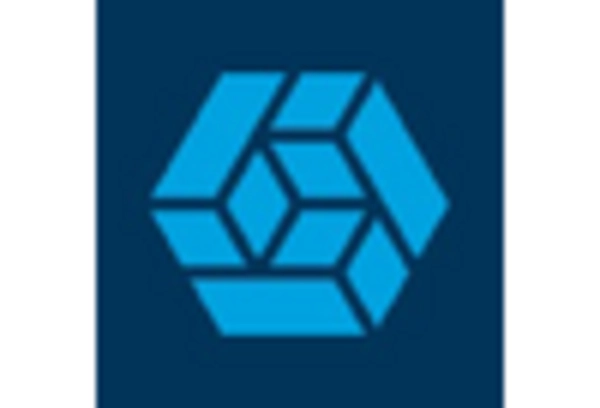Enhanced Focus on Workplace Well-Being
The growing awareness of workplace well-being is emerging as a significant driver for the lighting as-a-service market. Organizations are recognizing the impact of lighting on employee productivity, mood, and overall health. Research indicates that well-designed lighting can enhance focus and reduce fatigue, leading to improved performance. As a result, businesses are increasingly investing in lighting solutions that create a conducive work environment. The lighting as-a-service model offers flexibility in adapting lighting systems to meet the specific needs of different workspaces, thereby enhancing employee satisfaction. This focus on well-being is likely to propel the market forward, with projections suggesting a growth rate of approximately 10% as companies prioritize the health and comfort of their workforce.
Growing Demand for Sustainable Practices
The increasing emphasis on sustainability is significantly influencing the lighting as-a-service market. As consumers and businesses alike become more environmentally conscious, there is a rising demand for solutions that minimize ecological impact. The lighting as-a-service model aligns well with these sustainability goals, as it promotes the use of energy-efficient lighting technologies that reduce carbon footprints. Moreover, many companies are setting ambitious sustainability targets, such as achieving carbon neutrality by 2030. This trend is driving organizations to seek out lighting solutions that not only meet their operational needs but also contribute to their overall sustainability objectives. Consequently, the market is likely to experience a compound annual growth rate (CAGR) of around 12% as businesses increasingly prioritize eco-friendly lighting options.
Regulatory Support for Energy Efficiency
the lighting as-a-service market benefits from robust regulatory frameworks aimed at enhancing energy efficiency. The German government has implemented various policies that encourage the adoption of energy-efficient lighting solutions. For instance, the Energy Efficiency Act mandates that businesses reduce their energy consumption by 20% by 2025. This regulatory environment fosters a favorable landscape for the lighting as-a-service market, as companies seek compliant solutions that not only meet legal requirements but also reduce operational costs. Furthermore, incentives such as grants and tax reductions for energy-efficient upgrades are available, which can lower the initial investment barrier for businesses. As a result, the market is likely to see increased demand for lighting as-a-service offerings that align with these regulations, potentially leading to a market growth rate of 15% annually in the coming years.
Cost-Effectiveness and Financial Flexibility
Cost considerations play a pivotal role in the growth of the lighting as-a-service market. Businesses are increasingly drawn to the financial flexibility that this model offers, as it allows them to avoid large upfront capital expenditures associated with traditional lighting systems. Instead, companies can opt for a subscription-based model, which spreads costs over time and aligns expenses with operational budgets. This approach is particularly appealing in sectors such as retail and manufacturing, where lighting is essential but can be a significant cost burden. According to recent data, organizations that adopt lighting as-a-service solutions can expect to reduce their lighting costs by up to 30% over a five-year period. This financial advantage, combined with the potential for enhanced energy savings, positions the lighting as-a-service market as an attractive option for businesses seeking to optimize their operational efficiency.
Technological Advancements in Lighting Solutions
The rapid pace of technological advancements is a key driver for the lighting as-a-service market. Innovations in LED technology, smart sensors, and IoT integration are transforming how lighting systems are designed and managed. These advancements not only enhance energy efficiency but also improve the overall user experience. For instance, smart lighting systems can adjust brightness based on occupancy or natural light levels, leading to further energy savings. The integration of data analytics allows businesses to monitor and optimize their lighting usage in real-time. As a result, the market is witnessing a surge in demand for advanced lighting solutions that offer both functionality and sustainability. It is estimated that the adoption of smart lighting technologies could increase the market size by approximately 20% over the next few years, reflecting the growing interest in innovative lighting as-a-service offerings.


